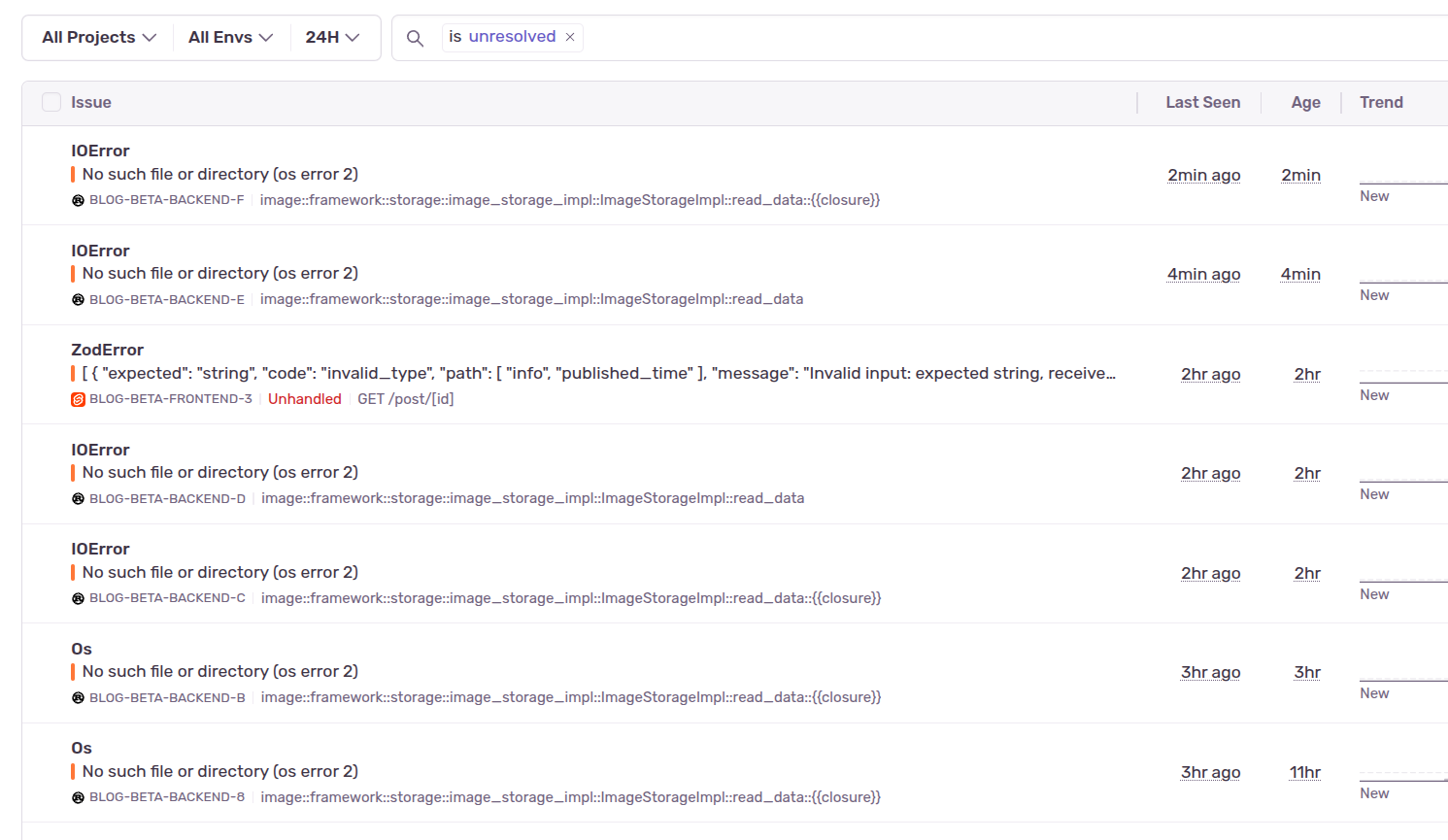All checks were successful
Frontend CI / build (push) Successful in 1m29s
### Description There are several environment variables should be set: - Frontend - `PUBLIC_SENTRY_DSN` - `SENTRY_AUTH_TOKEN` - Backend - `SENTRY_DSN` If the dsn isn't set, errors won't be sent to Sentry. ### Package Changes _No response_ ### Screenshots  ### Reference Resolves #90 ### Checklist - [x] A milestone is set - [x] The related issuse has been linked to this branch Reviewed-on: #120 Co-authored-by: SquidSpirit <squid@squidspirit.com> Co-committed-by: SquidSpirit <squid@squidspirit.com>
27 lines
855 B
TypeScript
27 lines
855 B
TypeScript
import { Environment } from '$lib/environment';
|
|
import { handleErrorWithSentry, replayIntegration } from '@sentry/sveltekit';
|
|
import * as Sentry from '@sentry/sveltekit';
|
|
|
|
Sentry.init({
|
|
dsn: Environment.SENTRY_DSN,
|
|
|
|
tracesSampleRate: 1.0,
|
|
|
|
// Enable logs to be sent to Sentry
|
|
enableLogs: true,
|
|
|
|
// This sets the sample rate to be 10%. You may want this to be 100% while
|
|
// in development and sample at a lower rate in production
|
|
replaysSessionSampleRate: 0.1,
|
|
|
|
// If the entire session is not sampled, use the below sample rate to sample
|
|
// sessions when an error occurs.
|
|
replaysOnErrorSampleRate: 1.0,
|
|
|
|
// If you don't want to use Session Replay, just remove the line below:
|
|
integrations: [replayIntegration()]
|
|
});
|
|
|
|
// If you have a custom error handler, pass it to `handleErrorWithSentry`
|
|
export const handleError = handleErrorWithSentry();
|